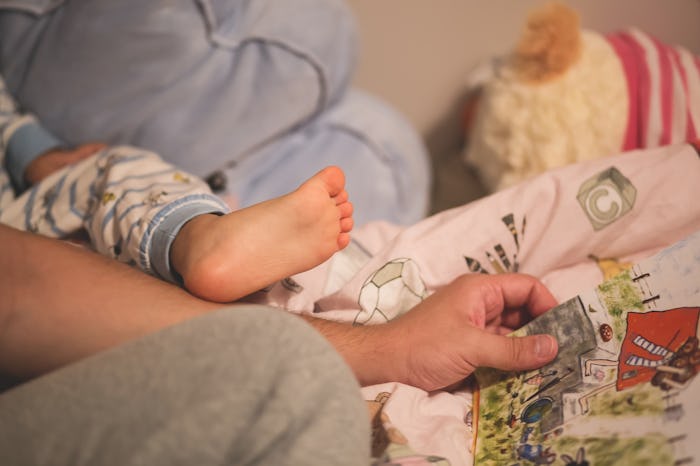Co-sleeping and bed sharing date back to the beginning of time. Parents in almost every culture have long considered it a norm to sleep in the same room as their infants, sometimes even in the same bed. Families continue co-sleeping in today's era due to traditional custom, as a personal parenting decision, or because of economic necessity. If you share a room or a bed with your child, there are a few things a sleep expert wants you to know about co-sleeping to help everyone in your family get more rest.
Although I didn't share a bed with my parents, I did sleep in the same room with them until I grew too big for my crib. At that point, I transitioned to co-sleeping with my older sister. I still remember the feeling of safety I had as a child knowing I had someone at arm's reach every night. When my own kids were born, I set up their bassinet in my room, and it didn't take long for them to find their way into what soon became the "family bed." We loved co-sleeping, but it doesn't negate the fact that my husband and I didn't get the best quality of sleep in those years.
Dr. Jose Colón, founder of Paradise Sleep, is dual board-certified in sleep medicine and neurology and specializes in sleep disorders in children and adults. I asked him in a recent interview what advice he had to parents who co-sleep. Here is what a sleep doctor wants you to know.
1You Should Establish Boundaries
Colón has several patients who co-sleep due to necessity. They are families who live on a limited budget, or may be sharing a home with another family, and space is tight. They don't have the option to transition their children into a separate room. He suggests establishing clear boundaries with your children regarding your shared sleep space.
Some children who co-sleep, won't fall asleep until their parents are also in bed. Implementing a rule, such as "you must be in bed when it is dark outside" can help you settle your child into the family bed when you still have things to do late at night or very early in the morning, or if you just want some time alone to decompress in those hours.
2You Should Reduce Electronics
The blue light from electronics can make it difficult for both parents and children to fall asleep at night. Colón recommends reducing electronics and television at night as it can interfere with sleep. "Computers, phones, tablets and laptops all emit blue light," he says. "When you use these devices at night, it tricks your brain into thinking it's day-time. This delays the sleep phase and can in turn lead to insomnia."
How many parents are guilty of falling asleep to the television or scrolling Facebook in bed? The majority of us are. If your child shares a room or bed with your, they are being exposed to this light as well which suppresses the secretion of melatonin, our sleep hormone.
3Learn Your Child's Sleep Cues
Whether or not you are co-sleeping, Colón recommends learning your child's sleep cues. This can be rubbing of the eyes, being hyper because they are over-tired, whining behavior, or that moment where they seem to zone out. Take advantage of these sleep cues and put your child to bed.
When I co-slept, I was guilty of letting the kids stay up a little later because I wasn't ready to get to bed. Often they would get overtired and cranky, and this made it a nightmare to get them (and me) to finally fall asleep.
4It's OK To Give Up Co-Sleeping
If you are co-sleeping by choice and not necessity, there will come a time to transition your child into his or her own room. If your child's sleep behaviors are keeping you up at night (or vice versa) the time to transition may be now. According to Colón, children may have periodic limb movements during sleep which may not always impact the child, but can disrupt the parent's sleep, especially if they are kicking. Additionally, nine percent of children snore, with 2 percent of the snoring caused by sleep apnea. This can mean a disruption to both the parent and the child's sleep. (Kids who snore, especially those who wake often, should be evaluated by a professional to determine if they need their tonsils removed.)
If you are expecting a new baby, but don't want to have both children in your bed, Colón suggests not waiting until the new child is born to begin transitioning your older child out of your bed.
